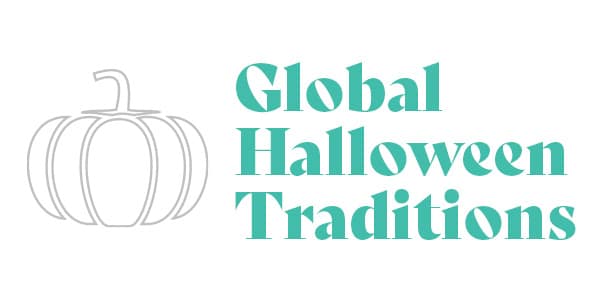
Halloween is a beloved holiday that has captured the imagination of people worldwide. While its roots trace back to ancient Celtic traditions, the celebration has evolved and spread across the globe, taking on unique forms in different cultures. At Interpro Translation Solutions, we understand the importance of cultural nuances in global communication. Let’s explore how Halloween and similar celebrations are observed in 12 countries around the world.
The Origins and Evolution of Halloween
Before we dive into global traditions, let’s briefly explore the history of Halloween. The holiday originated from the ancient Celtic festival of Samhain, marking the end of the harvest season and the beginning of winter. Over time, it merged with Christian traditions and evolved into the Halloween we know today.
Learn more about the history of Halloween
12 Unique Halloween Traditions Around the World
1. Austria: Pumpkin Festival (Kürbisfest im Retzer Land)
Austria celebrates Halloween with a unique twist. The Pumpkin Festival in Retzer Land, known as Kürbisfest im Retzer Land, is a highlight of the season. On November 11, Austrians celebrate Martini, which includes:
- Costume parades
- Lantern processions
- Traditional beliefs of welcoming dead souls
Did you know? Some Austrians believe that leaving bread, water, and a lighted lamp out will welcome dead souls back to earth for the night.
2. Belgium: Halloween and All Saints’ Day
Belgium’s Halloween celebrations are a mix of old and new traditions:
- Some villages celebrate Halloween with costume parties and decorations
- Other areas focus on All Saints’ Day, a more solemn occasion
- Many Belgians light candles in memory of deceased relatives on Halloween night
3. Canada: A North American Halloween
Canada’s Halloween traditions are similar to those in the United States:
- Introduced by Scottish and Irish immigrants in the 1800s
- Celebrated annually on October 31
- Features include:
- Elaborate decorations
- Costume parties
- Trick-or-treating
4. China: Hungry Ghost Festival and More
While Halloween is not a traditional Chinese holiday, the country has several festivals that share similar themes:
- Hungry Ghost Festival
- Qing Ming Festival
- Double 9th Festival
- Spring Festival
In areas with large expat communities, Halloween decorations and celebrations are becoming more common.
5. England: Mischief Night and Punkies
England has its own unique Halloween traditions:
- “Mischief Night” – the origin of trick-or-treating
- “Punkies” – carved beets instead of pumpkins
- Guy Fawkes Night on November 5 often overshadows Halloween celebrations
6. France: A New Halloween Trend
Halloween in France is a relatively new phenomenon:
- Not a traditional French holiday
- Gaining popularity, especially among younger generations
- Celebrated with costume parties and spooky decorations
7. Germany: Halloween auf Deutsch
Germany has embraced Halloween in recent decades:
- Became popular in the 1990s
- Decorations start appearing in mid-October
- Halloween-themed parties are common
- Martinstag on November 11 features costumes and lantern processions
8. Hong Kong: Commercialized Halloween
Hong Kong has put its own spin on Halloween:
- Increasingly popular in recent years
- Theme parks like Disneyland and Ocean Park host special events
- Shopping centers are decorated with spooky themes
9. Ireland: The Birthplace of Halloween
Ireland is considered the original home of Halloween:
- Rooted in the ancient Celtic festival of Samhain
- Unique traditions include:
- “Knock-a-dolly” pranks
- Halloween card games
- Eating barnbrack, a traditional fruitcake with hidden treats
10. Japan: A Modern Halloween Celebration
Japan has embraced Halloween with enthusiasm:
- Popularized by Tokyo Disneyland and Universal Studios Japan
- Focuses on costumes and decorations rather than trick-or-treating
- Street parties and parades are common in major cities
11. Korea: Chuseok – A Different Kind of Harvest Festival
While Halloween isn’t widely celebrated in Korea, they have their own autumn festival:
- Chuseok (Korean Thanksgiving Day)
- Celebrated according to the lunar calendar
- Involves visiting ancestral hometowns and feasting on traditional foods
12. Latin America, Mexico, and Spain: Día de los Muertos
The Day of the Dead is a significant celebration in these regions:
- Celebrated from October 31 to November 2
- Honors deceased loved ones
- Features colorful decorations, altars, and traditional foods
The Importance of Understanding Global Traditions
As the world becomes increasingly interconnected, understanding and respecting diverse cultural traditions is more important than ever. At Interpro Translation Solutions, we specialize in helping businesses navigate these cultural nuances through our expert localization services.
Why Cultural Awareness Matters in Business
- Builds stronger international relationships
- Avoids cultural faux pas
- Enhances marketing effectiveness
- Improves customer satisfaction
Learn more about our cultural consulting services
Testimonial
“Interpro’s cultural insights were invaluable in helping us adapt our Halloween marketing campaign for international markets. Their expertise ensured our message resonated with local audiences while respecting cultural sensitivities.”
– Sarah Johnson, Marketing Director at Global Treats Inc.
Conclusion: Embracing Global Halloween Traditions
As we’ve seen, Halloween and similar celebrations take many forms around the world. By understanding and appreciating these diverse traditions, we can foster greater cultural awareness and connection. Whether you’re planning an international marketing campaign or simply want to expand your cultural knowledge, embracing global Halloween traditions is a fun and enlightening experience.
Ready to take your business global?
Contact Interpro Translation Solutions today for expert language and cultural consulting services. Let us help you navigate the complexities of international markets with confidence.
Get Your Free Cultural Consultation
This article was last updated in October, 2024. For the most current information on global Halloween traditions, please consult with our cultural experts.
Don't forget to share this post!
Stay Updated with Interpro
Subscribe to our newsletter for the latest updates and insights in translation and localization.








